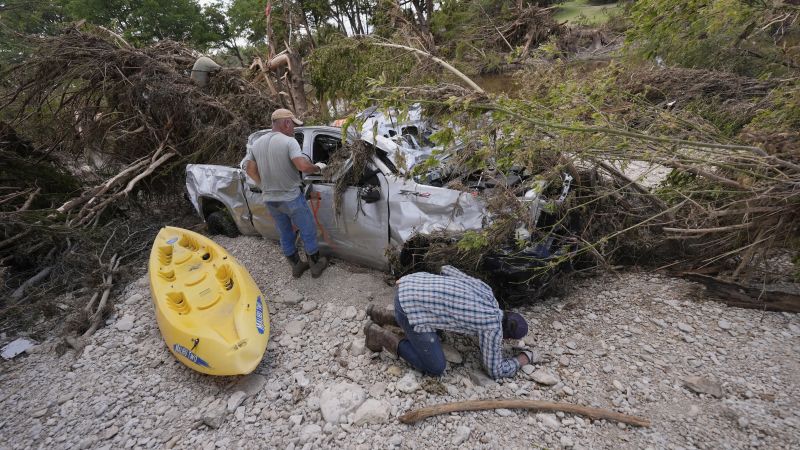As the torrential rains battered central Texas, the region faced a catastrophic flooding event last weekend, prompting urgent response efforts from local and federal agencies. The Federal Emergency Management Agency (FEMA) activated its operations, ready to send search and rescue teams along with necessary resources—a typical response pattern given the scale of destruction witnessed in similar past incidents. However, the agency found itself stymied by a series of bureaucratic hurdles, revealing complexities in disaster management.
Reports indicate that FEMA encountered significant obstacles due to a controversial directive implemented by Secretary of Homeland Security Kristi Noem. The directive mandated that any federal contract or grant exceeding $100,000 required her explicit approval before any disbursement could take place. This policy change has provoked criticism, especially since the costs associated with disaster responses often reach into the billions. Within this framework, FEMA officials characterized the threshold for approvals as effectively trivial in the context of disaster response, yet one that severely impaired the agency’s operational fluidity.
Under the directive, FEMA’s ability to act independently during emergencies faced significant constraints, raising concerns about its capacity to respond effectively when immediate assistance is paramount. Longtime officials within the agency noted that the previous clarity in orders to prepare for and respond to disasters has been diminished under the current stipulations. An example of this disruption played out as towns in central Texas found themselves submerged, where the agency was unable to deploy Urban Search and Rescue crews promptly—these teams typically are positioned close to disaster zones in anticipation of immediate need.
As conditions worsened, FEMA officials realized they needed Secretary Noem’s explicit authorization to deploy additional critical resources. Alarmingly, this authorization was not granted until over three days after the flooding commenced. This delay in necessary approvals led to frustration and confusion amidst an already chaotic situation, as local rescue crews worked diligently, striving to save lives under dire circumstances.
Despite the delays, officials from the Department of Homeland Security defended the federal response. They cited that, surprisingly, there was no initial need for FEMA’s intervention as the department utilized other assets within DHS, such as the Coast Guard and Customs and Border Protection, to manage the situation. However, as the need for FEMA resources became more apparent, relevant requests were eventually approved by Secretary Noem.
DHS spokeswoman Tricia McLaughlin highlighted a strategic shift in FEMA’s approach, suggesting a transition from a “bloated” operational model to a streamlined force focused on empowering state-level actors in disaster response efforts. This statement aligns with broader discussions involving the Trump administration concerning the dispersal of disaster management responsibilities from federal to state levels, raising concerns about the preservation and efficiency of FEMA’s function going forward.
While Texas has historically prided itself on a robust emergency management framework, the unforeseen bureaucratic delays at FEMA undoubtedly posed additional challenges during the unfolding crisis. Requests to FEMA for critical aerial imagery and additional support were similarly entangled in approval delays, drawing attention to a wider landscape of uncertainty surrounding FEMA’s authorization and operational efficacy under the current administration.
Overall, as floodwaters receded and assessments of the damage began, the response from FEMA was scrutinized for being less than adequate. Initial reports indicated that, at the onset, only a small number of FEMA personnel had been deployed relative to the scale of the disaster, a trend that has continued to raise alarms as additional staff gradually became involved following the initial approval processes. By the time aid expanded, local officials had already begun to lean heavily on state resources and mutual aid compacts to supplement federal responses.
In summary, the events surrounding the floods in Texas have highlighted critical vulnerabilities within FEMA’s operational capabilities. Its layered bureaucracy and recent policy shifts have raised questions about the agency’s effectiveness in real-time disaster response scenarios, particularly as the nation enters a peak period for natural disasters such as hurricanes and wildfires. Concerns remain prevalent about how bureaucratic red tape can impact timely and effective disaster response, and ongoing discussions within government circles regarding the ultimate path forward for FEMA will likely shape how similar crises are managed in the future.










